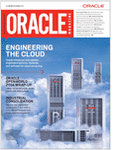First-rate announcement from Oracle through Steven Chan Blog for Mobile Apps strategy on Oracle eBusiness Suite. With the rapid advent of social media and our behavior to see everything on smart phones. We as users of Oracle eBusiness suite started feeling old fashioned with the release of Oracle Fusion Applications where everything was coming for smartphones.
Finally we have got the update and new apps for Oracle Timecards, Oracle approvals. Oracle apps are being developed using Oracle Mobile Application Framework and it will be for both Apple iOS and Google Android.
Will not write more lets go directly to Steven’s blog on Mobile Apps for Oracle eBusiness Suite:
—————————————————————————————
Mobile app strategy
We’re building our family of mobile apps for the E-Business Suite using Oracle Mobile Application Framework. This framework allows us to write a single application that can be run on Apple iOS and Google Android platforms. Mobile apps for the E-Business Suite will share a common look-and-feel.
The E-Business Suite is a suite of over 200 product modules spanning Financials, Supply Chain, Human Resources, and many other areas. Our mobile app strategy is to release standalone apps for specific product modules.
Our Oracle Timecards app, which allows users to create and submit timecards, is an example of a standalone app.

Some common functions that span multiple product areas will have dedicated apps, too. An example of this is our Oracle Approvals app, which allows users to review and approve requests for expenses, requisitions, purchase orders, recruitment vacancies and offers, and more.

You can read more about our Oracle Mobile Approvals app here:
Our goal is to support smaller screen (e.g. smartphones) as well as larger screens (e.g. tablets), with the smaller screen versions generally delivered first. Where possible, we will deliver these as universal apps. An example is our Oracle Mobile Field Service app, which allows field service technicians to remotely access customer, product, service request, and task-related information. This app can run on a smartphone, while providing a richer experience for tablets.

Deploying EBS mobile apps
The mobile apps, themselves (i.e. client-side components) can be downloaded by end-users from the Apple iTunes today. Android versions will be available from Google play. You can monitor this blog for Android-related updates.
Where possible, our mobile apps should be deployable with a minimum of server-side changes. These changes will generally involve a consolidated server-side patch for technology-stack components, and possibly a server-side patch for the functional product module. Updates to existing mobile apps may require new server-side components to enable all of the latest mobile functionality.
All EBS product modules are certified for internal intranet deployments (i.e. used by employees within an organization’s firewall). Only a subset of EBS products such as iRecruitment are certified to be deployed externally (i.e. used by non-employees outside of an organization’s firewall). Today, many organizations running the E-Business Suite do not expose their EBS environment externally and all of the mobile apps that we’re building are intended for internal employee use. Recognizing this, our mobile apps are currently designed for users who are connected to the organization’s intranet via VPN. We expect that this may change in future updates to our mobile apps.
Mobile apps and internationalization
The initial releases of our mobile apps will be in English. Later updates will include translations for all left-to-right languages supported by the E-Business Suite. Right-to-left languages will not be translated.
Customizing apps for enterprise deployments
The current generation of mobile apps for Oracle E-Business Suite cannot be customized. We are evaluating options for limited customizations, including corporate branding with logos, corporate color schemes, and others. This is a potentially-complex area with many tricky implications for deployment and maintenance. We would be interested in hearing your requirements for customizations in enterprise deployments.
Prerequisites
References
Related Articles















